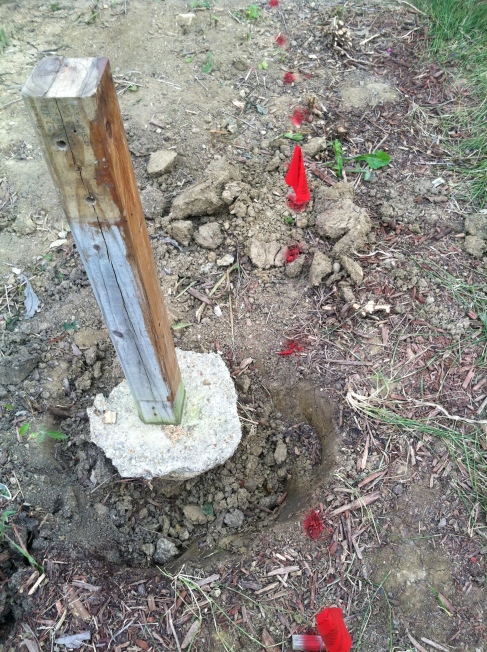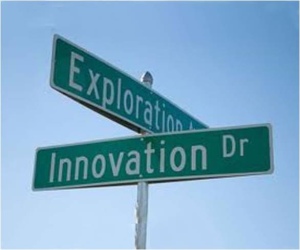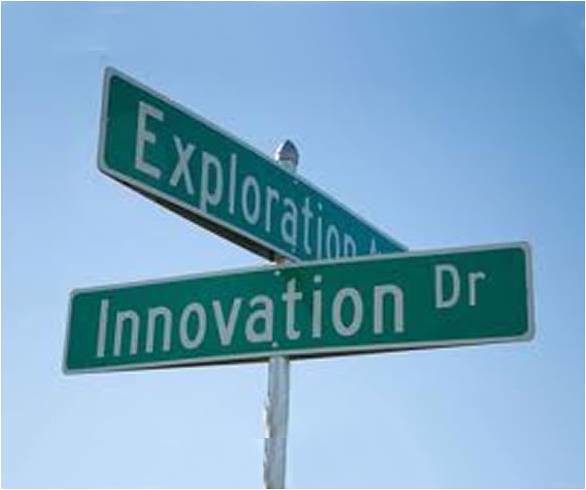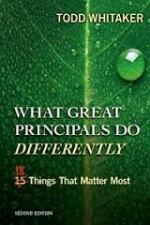Saturday, August 17, 2013
RunKeeper, Trust, and Leadership
Thursday, August 8, 2013
Digging Deeper into the Research
We are removing our deck in preparation for a new patio. I offered to do the demolition because when else will it be okay for me to destroy something? After removing the decking, I started to dig around a support post so that we could pull it out of the ground. After 5 minutes of digging, my wife asked if we should call the utilities commission to see where the power, cable and other utility lines are buried. I'm glad she made that suggestion because I found out after the utility lines were marked that I was digging right in the area of our electrical line.
That was close. I will definitely be more cautious as I continue to demo the deck. I realized I was too focused on getting the job done and I wasn't thinking about the bigger picture. It made me think of how we educators are sometimes too narrow in our focus when we need to slow down and dig deeper into the issue.
Educational research plays a large role in our lives as educators. Our district and our building have high standards for providing “research-based” interventions for our students. What I have learned from my teaching experience and from the research I have done recently for a quantitative statistics course is that educational research is a complicated world. “Research-based” interventions can sound like a safe bet, but digging deeper into the research can reveal a truer picture of the research.
I have been investigating “computer-assisted instruction” and its effects on comprehension. I wanted to look into this area because I help facilitate intervention plans for students who are struggling with a specific academic, behavioral, or social skill. Many of the students who are referred to our team for assistance are not responding to classroom instruction, and these same students may need the instruction to be presented in a unique way. I wanted to see if computer-assisted instruction could be a possible solution to help increase student comprehension. Computer-assisted instruction usually refers to instruction that is guided by a computer program that responds to how a child answers questions or how a child is applying a skill that the program is teaching. A good example of computer-assisted instruction is Khan Academy.
Here is what I found out from my research:
Most of the computer-assisted instructional programs for reading focus on phonemic awareness and word solving skills.
All of the studies measured aspects of phonemic awareness and showed positive gains among student in this skill.
While all of the research studies I read claimed the computer-assisted instructional program they studied might improve comprehension, NONE of the studies included reliable data about the effects on comprehension (which is the ultimate goal of literacy instruction).
So, how does this impact me as someone who wants to lead a building some day?
I have a responsibility to dig deeper into “research-based” claims.
I need to remember computer-assisted literacy instruction probably focuses only on phonemic awareness, which is only one aspect of learning to read.
The best way a child can improve his or her comprehension is by being immersed in quality texts that are at the child’s instructional level and when the child’s reading behaviors are being supported with explicit language from the teacher.
I need to remember to stay true to my belief that nothing can replace high-quality literacy instruction that is provided by an expert teacher (the kind that live and breathe).
I invite you to take a look at some of the research yourself.
https://docs.google.com/file/d/0B7pbjcf5Ua1kNEpqaHRMTzhxTnM/edit?usp=sharing
Sunday, June 30, 2013
"Remembering educator Rita F. Pierson" from TED Blog
"Remembering educator Rita F. Pierson" from TED Blog
Yesterday, TED Blog posted news that Rita F. Pierson passed away. I saw her TED Talk about a month ago and I was blown away. Her passion and advocacy for building lasting relationships with children is inspiring and reminded me just how important my job as an educator is to the kids I work with. And she did all of that in about 15 minutes of speaking.
We are lucky that her message has been captured in her TED Talk, but her passing is a great loss.
Relationships, not technology, make a difference
I am fortunate enough to be hosting a session at the Ohio Innovative Learning Environments Conference this year. I am excited to be presenting on the topic of blogging in schools and sharing our participation in the #learn365 project by blogging about what our community was learning each day.
The conference has “innovative” in the title, which makes me think of “edtech” as a major theme for the conference. It also makes me think that people are expecting a tech-themed conference. Blogging this school year did involve a lot of technology use in order to share our learning and I was ready to put the focus of the session on the technology and web-based apps we used.
However, when I look back on the posts we did, the themes that were most common had nothing to do with technology. Our learning community shared stories of relationships, collaboration, hopes, dreams, and reflections. We did share a couple of posts about technology, but within those posts were ways we were using technology to connect with others in order to learn.
Learning about how we can utilize technology in our classrooms is important for us educators to do in order to strengthen our instruction. However, I believe that there needs to be a larger purpose that drives this learning. This year, I learned that there is amazing power in connecting with others through technology and sharing what we are learning. This affirmed my belief that it’s the relationships and the connections we make with other learners, not the technology, that really matters most.
Saturday, June 29, 2013
Relationships, not technology, make a difference
Saturday, March 16, 2013
How do you know?
 |
| http://www.fotopedia.com/items/flickr-2200500024[/caption] |
Two years ago, my principal and I were walking down the hallway, chatting about the day somehow the conversation moved to how I thought I needed to start grad school.
"Administration?" she asked with a smile.
"No way," I said without hesitation.
I'm sure I could have been a little more sensitive and said "maybe" instead of dismissing the idea completely, but it was something I had never considered. At the time, I had only been teaching for 4 years. I was very focused on improving my teaching and thought that focusing my grad school work on teaching and learning would be something I would enjoy. Administration wasn't even in the picture.
But in that moment with my principal, a seed was planted. I started to wonder if leadership was a path I should take. Over the summer, a building leadership opportunity came my way. If I took it, it would mean less time in the classroom and more time working with small groups of students, working with teachers, analyzing data and coordinating testing. So, I did a quick pro and con list and decided to go for it.
I'm finishing up my second year in this position that I was fortunate enough to get, and I can firmly say that I'm glad I am going down this path. Leadership is a new found passion and interest. I'm one year into my educational administration program and I will be starting my principal internship this fall. I would have never guessed I am where I am two years ago. So, how did I come to realize building my leadership skills was the path I wanted to take?
- I started following blogs and folks on Twitter that focused on educational leadership.
- I reflected on what I am passionate about (student learning, innovative teaching, and building relationship) and made a plan for blending that into a leadership style.
- I exercise and develop my leadership vision by speaking up and sharing my thoughts more.
- I listen more and ask lots of questions.
- I do want I can to remove roadblocks for students and teachers so they can act on their goals and passions.
If you are wondering if developing your leadership is something you might be interested in doing, here are a couple of links to blogs that helped me realize building my leadership skills was the right path to take for me:
A "To-Be" List for Aspiring Leaders by Angela Maiers
Leaders Should Be Learners (video) by George Couros
Are You A Teacher-Leader? at Getting Smart
6 SIgns of a Natural Leader at SmartBlogs
Saturday, March 9, 2013
Book Recommendation: What Great Principals Do Differently, by ToddWhitaker
Each time I work on my grad school coursework or read a book on leadership, I find myself revising my leadership vision and philosophy. Sometimes I get overwhelmed in trying to remember and organize all of the great ideas I come across. I have a notebook in Evernote where I'm collecting ideas and articles, and I am keeping a list of "When I'm Principal" so that I can remember what I've be thinking about when it comes to developing my leadership vision and philosophy.
I recently read What Great Principals Do Differently: Eighteen Things That Matter Most, by Todd Whitaker. It is an excellent book for those interested in the principalship. I found that the eighteen things that Whitaker includes are a great framework for developing my leadership philosophy. For example, I know that someday I will have the opportunity to hire a teacher. It goes without saying that this is a very important duty for the principal. As Michael Smith puts it, you're about to sign someone to a 35 year contract. Also, Whitaker feels that hiring the best is the quickest way to improve a school (p. 49). Both of these points underscore the importance of this task.
I know that I will want the very best person for the job, but that doesn't provide guidance for how I can do that. Whitaker offers some clarification for this important task.
Some principals look for candidates who are a good match, teachers who will fit in and become like their school. Great principals have a different goal: to have the school become more like the new teacher. (p. 49)This is just an example of how instructional Whitaker's book can be for current and future administrators. As I said before, I feel like I now have a framework for organizing my ideas as I develop my leadership philosophy and vision. I highly recommend picking up a copy!



